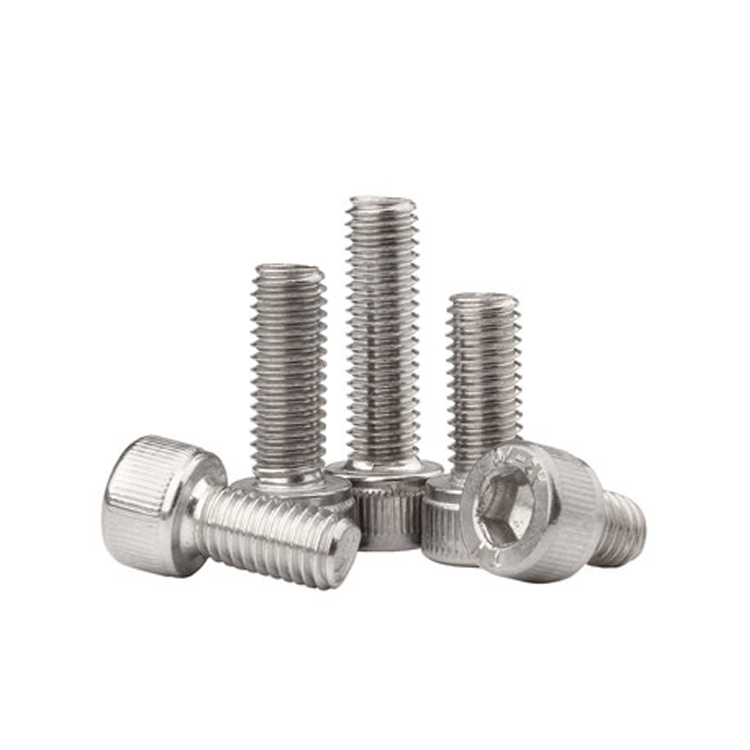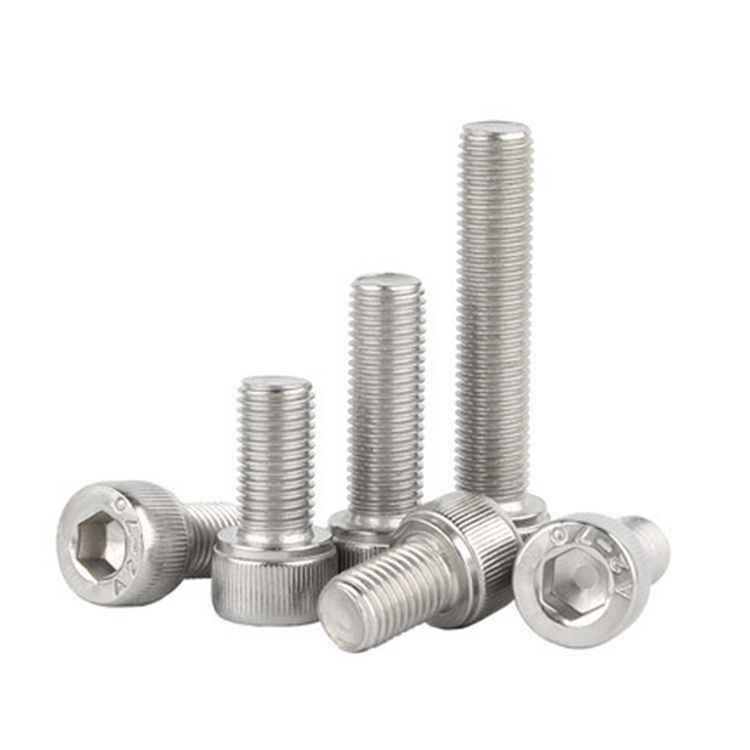

In the fast-paced and highly competitive world of automotive manufacturing, every component, no matter how small, plays a crucial role in ensuring the quality, durability, and performance of the final product. Fasteners—particularly countersunk screws—are integral to automotive assembly lines. These screws are designed to sit flush with the surface, offering a smooth finish that reduces wear, improves safety, and enhances the overall aesthetic of the vehicle.
In this article, we will explore why countersunk screws are the preferred choice for automotive manufacturers, and how they help streamline production, improve assembly line efficiency, and contribute to the vehicle's long-term performance.

A countersunk screw is a type of fastener designed with a flat or beveled head, allowing it to sit flush with or below the surface of the material it is securing. This design feature is crucial for applications where a smooth surface finish is needed, such as in automotive manufacturing.
Countersunk screws are typically used when the screw needs to be driven into a surface that requires a flush or near-flush finish. In automotive assembly, this is essential for parts such as body panels, trim, and interior components where protruding screws could affect the vehicle’s functionality, appearance, or aerodynamics.
One of the primary reasons automotive manufacturers choose countersunk screws is to improve the aesthetic appeal of the vehicle. A protruding screw head can disrupt the smooth surface of a car’s body or interior, creating unsightly bumps or sharp edges. By using countersunk screws, the head of the screw is recessed into the material, creating a seamless and clean finish.
This design choice is especially important in the automotive industry, where attention to detail is paramount, and every component contributes to the vehicle’s overall look. For instance, exterior body panels and interior trim often require flush-fitted screws to maintain a smooth, sleek surface.
Countersunk screws provide an additional layer of safety, especially in parts that are subjected to constant vibration, such as engine components or body panels. A screw head that sits flush with the surface is less likely to catch or cause injury during handling or assembly. This feature reduces the risk of accidents on the assembly line and improves the safety of workers.
Furthermore, because countersunk screws are designed to sit flush, they are less likely to loosen over time. This enhances the durability of the parts they secure, which is critical in automotive manufacturing, where the longevity and safety of components are essential for overall vehicle performance.
The design of a countersunk screw allows for more even distribution of torque during installation, which is crucial in automotive manufacturing. When the screw is driven into the material, the flush fit helps ensure a stronger hold with less risk of damaging the material. This is especially important in high-stress areas like the car’s frame, suspension components, and engine parts, where maintaining structural integrity is crucial.
Additionally, countersunk screws provide better resistance to external forces like vibration and shock, which are common in vehicles during use. This improves the holding power of the screw and contributes to the overall performance and reliability of the vehicle.
Using countersunk screws can also enhance assembly line efficiency. Since these screws are designed to sit flush, the need for additional finishing work—such as grinding or sanding—is eliminated. This reduces the overall time spent on assembly and minimizes the risk of errors. As a result, manufacturers can speed up production without sacrificing quality.
Moreover, precision fasteners like countersunk screws are available in various materials, sizes, and finishes, making it easy for automotive manufacturers to source the right components for their specific needs. This flexibility reduces lead times and ensures that parts are readily available, further improving assembly line productivity.
Many automotive manufacturers opt for countersunk screws made from stainless steel or corrosion-resistant alloys, ensuring that the screws perform well in harsh environments. Components in vehicles are often exposed to moisture, salt, and other corrosive elements, which can lead to rust and degradation over time.
By using corrosion-resistant countersunk screws, manufacturers can reduce the likelihood of rust and damage, ensuring that the vehicle remains in top condition throughout its lifecycle. This is particularly important for exterior components that are exposed to the elements, such as wheel rims, bumpers, and door panels.

When securing body panels or other exterior components, countersunk screws are often the ideal choice. These screws provide a flush finish that enhances the vehicle’s aesthetic appearance, while ensuring a strong and durable connection between parts.
Countersunk screws are commonly used in the assembly of interior components such as dashboards, seats, and trim panels. The flush fit prevents snagging and ensures that the screws do not interfere with the comfort or appearance of the vehicle’s interior.
For critical components such as engine parts, transmission assemblies, and suspension systems, countersunk screws help ensure a strong and secure connection that can withstand the high-stress conditions of daily driving. Their resistance to loosening and vibration makes them ideal for these demanding applications.
Countersunk screws are an essential fastener for automotive manufacturers, offering a range of benefits that improve both the functionality and aesthetics of the vehicle. From enhanced design appeal to improved safety and durability, these fasteners contribute to a higher-quality end product. Additionally, their ability to reduce assembly time, increase torque distribution, and provide better corrosion resistance makes them indispensable in modern automotive manufacturing.
As automotive manufacturers continue to strive for better efficiency and quality, countersunk screws will remain a key component in achieving these goals. By choosing the right fasteners for their assembly lines, manufacturers can improve their processes, deliver superior products, and ultimately stay competitive in the ever-evolving automotive industry.
Q1: What are the main advantages of countersunk screws in automotive manufacturing?
Countersunk screws provide a flush finish, improved safety, better torque distribution, and increased holding power, all of which enhance the performance and durability of automotive parts.
Q2: Are countersunk screws suitable for high-performance automotive components?
Yes, countersunk screws are ideal for high-performance automotive components because they offer a secure connection and resist loosening under vibration.
Q3: How do countersunk screws help improve the efficiency of automotive assembly lines?
By using countersunk screws, manufacturers eliminate the need for extra finishing work, speeding up production and reducing the chance of errors during the assembly process.